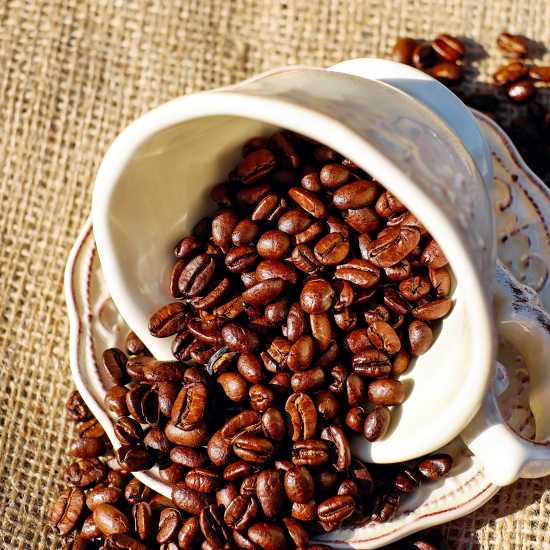Does the Colombian spring manor taste good? the planting and processing of spring manor single bean

For professional baristas, please follow the coffee workshop (Wechat official account cafe_style)
The following taste is based on personal baking methods
The feeling after tasting is for reference only.
Each coffee bean has different characteristics.
Everyone's taste is not necessarily what they like.
You can consider trying different baking degrees.
Soy beans in an explosion
Drop the beans at the end of the explosion.
Drop the beans from the end of the first explosion to the second explosion.
Soy beans in an explosion
Drop the beans at the end of the explosion.
Drop the beans from the end of the first explosion to the second explosion.
Touch the beans under the second explosion.
Put the beans into the second explosion for 10-15 seconds
The second explosion of dense beans
I hope you bakers can find a more favorite flavor.
Colombia Colombia
Population: 47073000
Colombia has well-defined growing areas and the impressive variety of coffee they produce. Whether you want round, heavy coffee, refreshing, fruit-flavored (or somewhere in between), Columbia beans are most likely. Colombia is divided by geographical location, and it is not difficult to find that the coffee there has many common characteristics. If you like coffee in one area, other areas will like it as well. Coffee trees get double cropping in Colombia, the second main harvest and harvest each year, which is called "mitaca" locally.
CAUCA
CAUCA Cauca, best known for its coffee cultivation around Inza and Meseta de Popayan in Popayan, provides favorable growth conditions at high altitudes on the plateau and near the equator and surrounding mountains, which protects coffee from Pacific humidity and southern trade winds. This creates a very stable climate all the year round. In addition, coffee in the area has significant volcanic soil. According to historical records, there is a single rainy season from October to December every year.
Altitude: 1700-2100m
Harvest: March-June (major crops), November-December (mitaca crops)
TOLIMA
TOLIMA Tolima, one of the strongholds of Colombia's notorious rebel group Revolutionary Armed Forces of Colombia (FARC), until recently held control. Tolima has suffered from fighting in recent years, which makes the visit difficult. High-quality coffee from the region is grown by small farmers in very small areas and exported through cooperatives.
Altitude: 1200-1900m
Harvest: 3mer-June (main crop) crops October to December (mitaca)
Variety: 9% Typica 74% Catura 17% Castillo Villa
NARINO
Some of Colombia's highest quality coffee is grown in Narinho, which is arguably the most amazing and complex. Growing coffee in many areas of these high elevations is a challenge, and coffee trees are likely to suffer from leaf blight. However, Narinho is close enough to the equator that the climate is suitable for planting coffee trees. Most of Narinho's 40,000 producers are small farmers, each with a planting area of less than 2 hectares (4.4 acres). Many people form groups and institutions to support each other and interact with FNC. In fact, the average size of the farm is less than 1 hectare (2.2 acres), and only 37 producers own more than 5 hectares (11 acres) of land in the area.
Altitude: 1500-2300 m (4900-7500ft)
Harvest: April-June Variety: 54% Typica, 29% CaturraMagol, 17% Castillo.
HUILA
Wirat has an excellent combination of soil and geographical advantages for growing coffee, and some of the most complex and fruity Colombian coffees come from here. There are more than 70, 000 coffee growers in the area, covering more than 16000 hectares (39500 acres).
Altitude: 1250-2000m
Harvest: September to December (main crop) April to May (mitaca crop)
Main varieties: 11% Typica, 75% Catura, 14% Castillo.
Colombia is currently the third largest coffee producer in the world, after Brazil and Vietnam. It first planted commercial beans in the 1830s, until coffee accounted for the largest export crop in the 20th century. The mountainous terrain, coupled with a variety of tropical microclimate, provides an ideal planting environment. 75% of the total output is sold abroad, making it the most important source of foreign exchange earnings.
Traditionally ripe coffee cherries are washed with water. In the past 15 years, the Coffee Research Center in Colombia has developed a system to protect the ecological environment, which requires almost no water treatment, which can reduce water pollution by 90% and reduce water consumption by 95%. This treatment can not only effectively maintain the ecology, but also improve the quality. Small farms sprinkle shelled coffee beans on the flat roof of their homes. Bask in the sun. Colombia has a good climate and a large temperature difference, and from a regional point of view, it produces almost all the year round. The main harvest time is from October of each year to February of the following year, and November and December are harvest periods.
The main varieties include Kaddura Caturra, Colombia Colombia, Tibica Tipica, Bourbon Bourbon, Elephant Bean Maragogype, and Tabi. Farms and cooperatives throughout the country, big or small, are distributed in more than 500000 municipalities and 14 major coffee-producing areas. A total of 2 million Colombians depend on coffee cultivation for a living, contributing 12.5 per cent to gross domestic product.
Spring Manor Finca La Primavera is the best of the Los Nalanjos Coffee Association, winning the C.O.E coffee competition in 2011 at an unprecedented price of $45 per pound. The owner of the farm is very proud to produce champion coffee, which is brilliant as a traceable tiny farm, when the farm owner Arnulfo is training his son in the Naranjos cup testing lab. Constantly innovate and find better varieties and practices, and taste a glorious cup. Arnulfo said, "I have to do something to give support to my wife and my children."
This batch is a spring manor non-competition batch (also in different years)
Property Characteristics: farm characteristics
Farm Farm name: Finca La Primaver Spring Manor
Farmer Farm owner: Arnulfo
Region producing area: Hamlet of Nueva Zelanda, San Augustin Huila
Country countries: Colombia Colombia
Farm Size Farm area: 2.8Hectares ha
Altitude altitude: 1840 m
Certification certification: None none
Coffee Characteristics: coffee characteristics
Variety variety: Caturra Kaddura
Processing System treatment: Fully washed and sun dried washing and drying in the grain drying field
Flowering period flowering period: September-October September to October
Harvest period harvest time: March-July March to July
Appearance appearance: 16Murray 17 items
Grade level: Farm Specific MicroLot
Top Jury Descriptions judge's comment: the baking degree measured by the cup for 60 seconds at the beginning of the first explosion (Cinnamon)
Aroma aroma / flavor flavor: almonds, longan tea, dried longan, chocolate, caramel, peaches, nectar, milk sugar, raisins, tangerine peel, figs
Sour: grapefruit, lime, plum, a little tannin
The complexity of complex is similar to that of other: Jasmine, clean fruit, special floral taste, sweet brownies
Overall style attributes: dark flowers, dried fruit aroma, sweet or good nuts
Cup test date: 2013.07.12
Dry aroma: 9
Wet aroma: 9
Clean: 9
Sweetness: 8
Acid quality: 10
Taste: 8
Flavor: 9
Yu Yun: 9
Balance: 9
Overall: 9
Cup test score: 89
Overall comments: we are really excited to drink the future of Nalanjos! It looks very promising and we should bring more top competition coffee throughout the year.
English product name
Colombia Huila Finca Primavera
The country
Colombia
Producing area
Ulla (Huila)
Producer
Hope Manor
Treatment method
Washing treatment
Variety
Kaddura (Caturra)
Altitude
1840 meters
Introduction:
The owner of the manor Arnulfo Leguizamp
Is the son of a coffee farmer born in Teruel, Huila province.
The study of mechanical activities in youth
Also engaged in a lot of urban environmental work.
Then I decided to devote myself to the coffee business.
More than 20 years ago, it was to learn about the archaeological park.
Mysterious statue travels to San Agustin
But the climate, the kind people and
The land resources made him fall in love with this place deeply.
This is where he met his wife Aura Rita Bolanos.
*
The coffee farm starts with a hectare of land owned by Aura Rita Bolanos
Then bought more than 3 hectares of land.
Slowly expand coffee cultivation and name the manor "Primavera"
The Spanish word means spring.
The estate is located in the village of El Tabor in San Agustin.
Arnulfo as a member of the Los Naranjos organization
He is quite proud of himself as a farmer.
*
The main variety planted in the manor is Caturra.
It is also gradually integrated into Castillo coffee.
Arnulfo has been certified for rainforest conservation for four years.
He is committed to the conservation of natural water sources and bird conservation.
Through waste recovery and non-use of chemical products
Continue to pay attention to environmental protection.
This belief principle is for his children and grandchildren.
He hopes that his land will not be polluted.
So that the cherished family can always live in a healthy environment.
The principle of coffee production is based on quality.
"I do these things with love and dedication," he said.
And supported by my wife and children.
*
The advantage of where my farm is located is a secret.
But to put it bluntly, it is mainly high altitude and suitable climate.
And each link is carried out with the attention and requirements to the flavor quality.
A very important point.
We only pick fully ripe coffee cherries.
And insist on appropriate and immediate handling.
Such as washing coffee fruit with clean water.
In a system called "Casa Elda", it is ventilated and dried in the sun.
*
Arnulfo also raised his son in Los Naranjos.
To learn cup testing skills in the cup testing laboratory
Lay the foundation for the succession of the career. For a new generation of coffee farmers
It is hoped that with miniature batches of coffee that can be traced back to production information
So that the fruits of their hard work can be shown to the world through excellent cup flavor.
The practice of purchasing batches of excellent flavor coffee at a premium
It also encourages coffee farmers to improve the quality of output to a considerable extent.
Spring Manor in the 2011 Columbia COE Competition
Win the honor of the champion manor with a high rating of 94 points
This product belongs to non-competitive bidding batch, and its performance is also excellent.
Flavor:
Floral lime honey plum tropical fruit sweet almond cocoa taste balanced and mellow
*
Important Notice :
前街咖啡 FrontStreet Coffee has moved to new addredd:
FrontStreet Coffee Address: 315,Donghua East Road,GuangZhou
Tel:020 38364473
- Prev

Panamanian Flint Manor how to deal with processing Flint Manor single Bean Grade
For professional baristas, follow the Coffee Workshop (Wechat cafe_style) VOLCAN-CANDELA Kendra volcano, an area that produces most of the Panamanian food and some amazing coffee. The region is named after the cities of Baru and Piedra Candela, which borders Costa Rica. Altitude: 1200-1600m harvest: 12
- Next

Columbia Spring Manor single Bean production area introduces how to brew Spring Manor single Bean
The exchange of professional baristas please follow the coffee workshop (Wechat official account cafe_style) Arnulfo has also trained his son to learn cup testing skills in Los Naranjos's cup testing laboratory, laying the foundation for his career. For the new generation of coffee farmers, it is hoped that with miniature batches of coffee that can be traced back to production information, the fruits of their hard work can be exhibited through excellent flavor in the cup.
Related
- Does Rose Summer choose Blue, Green or Red? Detailed explanation of Rose Summer Coffee plots and Classification in Panamanian Jade Manor
- What is the difference between the origin, producing area, processing plant, cooperative and manor of coffee beans?
- How fine does the espresso powder fit? how to grind the espresso?
- Sca coffee roasting degree color card coffee roasting degree 8 roasting color values what do you mean?
- The practice of lattes: how to make lattes at home
- Introduction to Indonesian Fine Coffee beans-- Java Coffee producing area of Indonesian Arabica Coffee
- How much will the flavor of light and medium roasted rose summer be expressed? What baking level is rose summer suitable for?
- Introduction to the characteristics of washing, sun-drying or wet-planing coffee commonly used in Mantenin, Indonesia
- Price characteristics of Arabica Coffee Bean Starbucks introduction to Manning Coffee Bean Taste producing area Variety Manor
- What is the authentic Yega flavor? What are the flavor characteristics of the really excellent Yejasuffi coffee beans?

